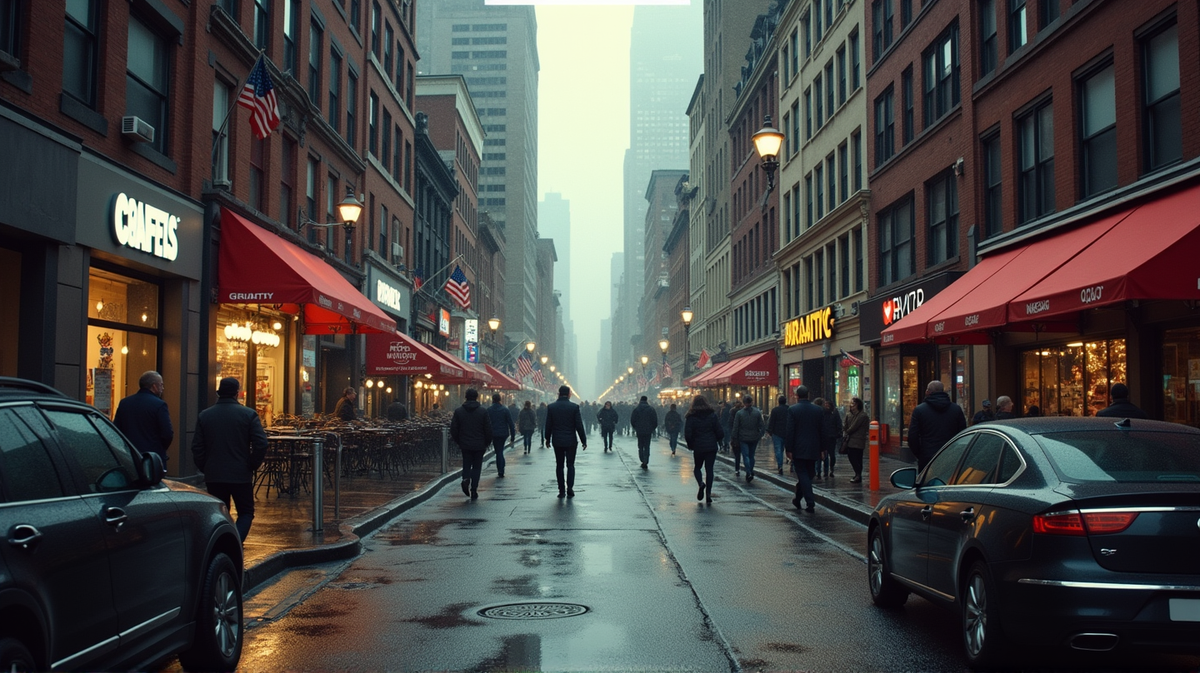Economic Alarm: U.S. Market Feels the Strain as Consumer Spending Dips
The U.S. economy contracts due to a significant drop in consumer spending, raising alarms about the potential onset of a recession.

In a surprising turn of events, the U.S. economy has contracted, recording a sharp decline in consumer spending. This shift has economists raising red flags, concerned that the nation might be edging closer to a recession.
Spending Slumps and Market Reactions
Recent federal data paints a gloomy picture: a nearly $30 billion drop in consumer spending was recorded last month compared to April. This dramatic decline signals a deeper issue at play, as personal spending forms the backbone of the U.S. economic infrastructure. The domino effect of this cutback, alongside dwindling exports and an influx of imports due to tariffs, set in motion an economic contraction.
The Bureau of Economic Analysis recently revised the country’s GDP data, reflecting a 0.5% drop in economic output in early 2025 compared to previous months. It’s a narrative of dwindling consumer confidence and economic uncertainty, with whispers of recession forecasts echoing louder than ever. According to Star Tribune.
Indicators of a Lagging Economy
The drop in spending was primarily driven by a staggering 50% reduction in the purchase of motor vehicles and parts. The rush to buy before new tariffs were enacted initially spurred buys, but now, consumers are hesitating.
Income levels have not been spared either. A near $110 billion decrease in personal income corresponds with reduced government benefits and sinking farm profitability.
The BEA’s estimates initially suggested a 0.3% economic decline—this stark contrast from growth at the end of 2024, marks a troubling shift.
The Role of Consumer Sentiment
Economic forecasts depend heavily on consumer sentiment. Emma Nelson from The Minnesota Star Tribune highlights that despite having jobs, Americans have become increasingly wary about their personal financial circumstances and the broader economic landscape.
Surveys indicate over 47% of respondents perceive a worsened economic landscape since the Trump era. This climate of doubt is affecting spending habits everywhere from retail establishments to the luxury goods sector, once thought immune to financial tumult.
A Growing Sense of Uncertainty
The talk of tariffs becoming a persistent economic thorn adds more complexity. Minneapolis Fed President Neel Kashkari discusses how businesses navigate potential price hikes, emphasizing the struggle to discern between short-term pricing jolts or enduring inflation shifts.
As the nation grapples with this economic ebb and flow, the U.S. market’s next move remains a topic of intense speculation, as financial analysts and families brace for the changes these economic dynamics will unleash.
In these uncertain times, while the stock market whistles its own tune, the question remains: will the consumer wield enough influence to steer the U.S. economy back into calmer waters, or are stormier days on the horizon?





